The Sacred Ecology of Grief
Keeping the material warm, finding safe containers for its release
. . . the willingness to be confused, I now realize, is a prerequisite for a good life
-Matt Haig, The Life Impossible
Friends,
I wrote this a while ago but didn’t post it right away because it’s different than my usual posts and I’m not entirely sure where it came from. Do you like it when that happens, or do you hate it? I mostly like it. I feel like I am sixteen people who have all lived eighteen different lives. I never know exactly who will show up to write what from day to day.
A week ago a tornado outbreak ripped through Michigan. I woke up near midnight to sirens blaring, the windows open, and the house shaking with wind. My daughter and I slept in the basement while my partner slept with the other child upstairs, the child who snoozed through sirens, wind, and the rain that was lashing their bedcovers until I closed their window upon first hearing the sirens.
It goes without saying that the event was pretty terrifying. My daughter was sleepy enough that it didn’t seem to hit her the same way it hit me. I kept trying to understand why the weather was sucking out my peace of mind so completely. Normally I can tap into something deeper, something that tells me it’s okay or, if it’s not, there’s not much I can do about it at this point. That part of me felt far away while I cuddled my child in the basement and watched my phone for updates. I wondered if it had something to do with waking up to sirens - it felt like we were in a war zone, awaiting air raids.
The winds took out a lot of power around us, and trees, and gave me a lot of compassion for situations others have been in and continue to be in - tsunamis, warfare, moments of true frailty where all you can do is pray for mercy. It was humbling. The next day, my kids had no school and the next day, I sort of forgot the taste and feel of my terror. But I remember wanting to tell you about it, for reasons I don’t completely understand.
Why do I need to write about my life so much? It embarrasses me! I think parts of me find the whole ordeal - being alive on earth - so overwhelming and weird.
Is a writer simply a documentarian of The Weird??
What I came here to write about: Nicole Russel-Wharton on Generational Silence
The week I drafted this post, I listened to two interviews that really moved me. They were both conducted by Tami Simon, publisher of Sounds True. Sidebar: Did you know that Sounds True first published Clarissa Pinkola Estes’s book Women Who Run with the Wolves as an audio program, after the success of which it was made into a book? Fun fact!!
The first interview was with Nicole Russel-Wharton, author of a book called Breaking Generational Silence. I was curious but not committed to what Nicole had to say because I don’t know her from Adam. I clicked on the interview link and looked up an hour later at my children’s school, minutes before I had to get them, tears in my eyes as I listened to Nicole’s description of forgiving her mother for having left, after her parents divorced when she was a kid.
I felt like I was abandoned by my mother. And so having that reflection and going to therapy to process all of those feelings, I was able to pick up the phone and share with my mom, I’m still angry. I’m still angry, and I can’t shake this, and I want to talk to you about it because I don’t want to be upset with you anymore . . . I remember my mother was crying and she explained things as best she could, and I was able to better understand her through the conversation. Did it make it right? The decisions that she made, did it make me feel less pain? No. But it helps me develop a stronger relationship with her, and I’m grateful for that because our time on earth is limited, and I don’t want her to leave here feeling like she didn’t do the best she could with what she had because she absolutely did that, and it looks different for everyone.
I really believe this - that “your best” is absolutely different for everyone (and “your best” can shift from year to year, and hour to hour). The humility in Russel-Wharton’s acceptance of this person so important to her - she did what she could with what she had - was breathtaking to me. I could hear the wisdom, as if the locus of pain had changed from that of a child to an adult able to see the wider force field around her.
At the end of the interview , Russel-Wharton said:
We have to be open-hearted, and we have to allow people to explain their viewpoints and why they feel the way that they do. That’s how we learn - by listening and not shutting people out, by not feeling like we are any better than anyone else, by just having dialogue and understanding and empathy, and then knowing that everyone’s beliefs is a result of their upbringing, of what they were taught, of what they were shown. And that doesn’t mean that it’s absolutely right or true. So there’s always opportunity for us to correct, redirect if we lean in and listen to one another and allow people the space to share their pain, their experiences, so that we can help others not have to go through those same things.
Reading these words again now brings more tears to my eyes. In the best of relationships true, patient, open, listening is a real skill, one I don’t think we’re doing the best job of cultivating right now, especially in our more fraught corners of discord. I hope that changes. I’m personally very interested in that project - learning how to stay open, grounded, and calm in spite of all my personal triggers. I wonder if that’s the real project of maturity.
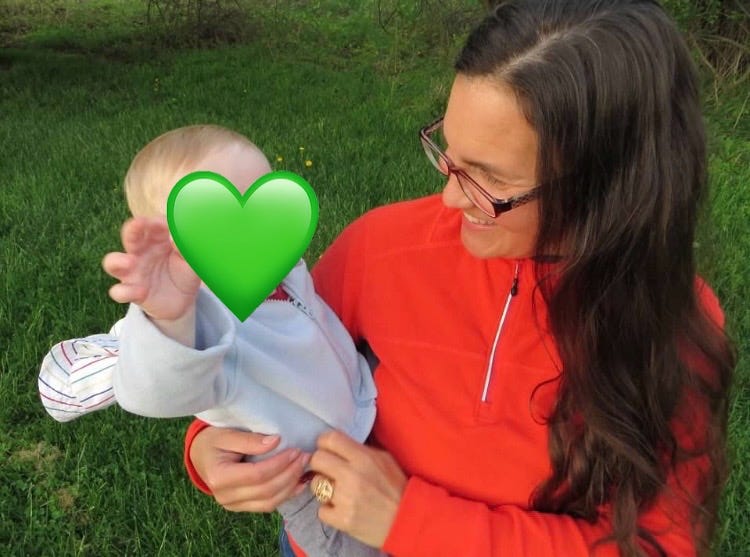
Some days I believe storytelling and memoir are the only things big enough to explore the whole field of what a person has been through. So many things influence us, including the lives of the people who came before us, and it all makes us who we are. It’s impossible to pick one thread of a person and say This is it. This is me. We are the sum of thousands of ancestors and their own programming and wounds. And we are the tender balancing point of choice that creates the future for our children and further ancestry. Everything is much more complex than we understand. Surrendering to this fact, working with what we’ve been given, is the work of a lifetime. It is both the soul’s calling and the fabric we weave with those very ancestors.
Apprenticeship with Sorrow (you’re never gonna believe who I’m talking about here)
The second interview was called Our Apprenticeship with Sorrow with wait-for-it . . . psychologist Francis Weller (whom I wrote about here) who said some beautiful things about grief and community and being held so we can freely process what we’re going through. He said you can’t really do grief work alone because you can’t be both the field of safety and the person experiencing release. If you don’t find a safe container, you become a flooded field. (He says this is why people fear going into sadness. They think it will never end.)
In his own words:
. . . grief requires two things: containment and release. But if it’s a solo project, you can’t do both jobs. So you become a chronic containment field for your sorrow. What we need are spaces and places, friendships, circles, communities where we don’t have to be the one doing the containment. We step into a container and through that we begin to feel like “I’m going to be held and I only have one job to do at that moment, which is to weep . . .
Boy, that phrase chronic containment field is haunting, no? I don’t know if any of this makes sense but it made A LOT of sense to me. It’s why I believe so much in friendship - let’s all be fields of safety for one another. That’s also why coaching is important to me. It’s such an honor to be the compassionate witness for others because I’ve had so many tender, skillful witnesses in my life, in the form of teachers, therapists, friends, lovers, elders, not to mention animal companions (and, well, trees).
Francis said something about how, in a wise community, people know that they’ll be the container this time and that next time they will be the one crying. He used a phrase that caught my ear, I think it was ecology of the sacred. I love that term so much.
I remember saying to a woman, you have so much joy, and her immediate response was, that’s because I cry a lot . . . .We never make that association. If you’re crying, you’re depressed. We make the association that crying is depression, but it is not depression. Grief is incredibly alive. It’s wild and feral, and it’s not a deadening place at all. It’s difficult, no doubt, but it’s not deadening, it’s enlivening.
I have noticed ever since the dawn of my brain tumor days (as I’m affectionately calling them) that I am drawn to brackish landscapes, to wetlands that aren’t water or land but are an interconnected maze of the two. In terms of contemplation, these landscapes make sense to me. We are constantly pouring from one container to another, becoming ourselves, undoing ourselves. It’s a natural law of the universe. It’s why commercial development can feel so destabilizing. To fill in fully alive wetlands to support enormous casinos or outdoor malls . . . well, we can feel in our animal bodies that this is not a great idea. Francis talks about this, too. We understand intuitively that the earth is our body. We feel it in our psyches as much as in our bones.
He says something else profound about grief work, which is that it requires an adult presence. One may need to process grief accumulated in childhood but by doing it in a circle of wise adults, the child-like part that wasn’t met skillfully in the past now feels safe and can let go of the sadness that got frozen into them. I hadn’t really thought about this before - that in adulthood, we instinctively know how to transform our grief meaningfully. In the right circle, when we have really moved it through, we see it in a different light. This is, in essence, what it means to heal.
Weller says it like this:
Only the adult can process grief meaningfully. Those child states, the skill sets aren’t there. They’re all about endurance and survival, which is great. We want to endure. We want to survive, but there’s no movement of the grief.
Alchemy says you have to keep the material warm for it to move. That’s the job of the adult, to bring compassion, to bring empathy, to bring warmth, to bring attention, to bring effort like writing or dancing or singing or whatever. The adult has the ability to keep that material warm so it can stay moving. We don’t want grief to solidify and harden.
I love that he mentions writing, dancing, and singing as ways of moving grief. I know so many people who believe in dancing to shift their energies. I personally love a good blast-the-song-through-the-car-roof moment, my inner teen jamming out. And of course, writing is one of my closest companions. It gives me a way to hold the intangible, and to sense - even if I can’t see it yet - the bigger story.
And now for some (unsolicited) advice:
In case this post isn’t weird or strident enough for you, I read something in Philip Moffitt’s book Emotional Chaos to Clarity that I think is useful right now, especially in North America where we face a time when our views have never been louder but our ability to tolerate people who disagree with us has been shifting so rapidly that collective discourse has grown hostile at best, life-threatening at worst.
Here’s Moffitt on the death penalty (which he vehemently opposes):
It’s easy for me to be judgmental about those who take a different view on this subject. Yet when I reflect, I see that my belief, no matter how supported by evidence it is, is only a view. It doesn’t entitle me to feel self-righteous, and it is clearly wrong to condemn others when it is their view, not them, with which I have issue.
This same perspective applies to personal situations. You may have had an abusive or neglectful parent or been in a manipulative relationship in which the other person was dishonest. Even so, your feelings are still only a view, a way of responding to the situation; they are not absolute. You stand up for them [your views] because they are your truth. It is not only your right to do so; it is your obligation. But you do so without attachment. If you discover that some of your perceptions are wrong, you’re okay, because your self-esteem is not based on being right. Instead your worth comes from being someone who stands for your truth and remains open to new understanding.
Gahhhh I love that last part. Your worth comes from being someone who stands for your truth and remains open to new understanding. I love this idea that it is your obligation to stand up for your opinions but your self-esteem is not based on being right. Talk about walking a knife’s edge! I also understand that in the case of abuse and other forms of physical and psychic harm, “staying open” absolutely does not mean staying open to your abusers. I also don’t mean to imply that we should sit back and tolerate other people as they strip us and the people / country we love of dignity, safety, and human rights. But I do believe that, before taking aim at people with whom I disagree, I first need to tend the loci of pain they have triggered inside, dealing with and maybe sharing my story from that tenderness. To do otherwise, I believe, adds fuel to the fire of collective discord. I absolutely understand how griping about decisions we disagree with helps us find our tribes and feel heard and even grow movements which, honestly, is of utmost importance. In addition to empowerment it is also a form of processing grief - in a post all about that, of course I say go for it. But I want to make sure we are open at the end of all this grieving and moving, that our fields have been cleared by the processing so we can make something new, together, something wild enough to hold the shifting reality of our beings. Something kind and feral enough that it can hold everyone’s becoming.
In the words of Russel-Wharton:
I think when it comes to our trauma collectively and individually, if we don’t talk about the wrongs, we never hold anyone accountable to make them right. And you can take that however you want to take it because there are a million things that could apply to. But I think within our families, within our communities, we have to speak about the trauma. We have to talk about when we are wrong. We have to share it with others, and we have to listen to others.
We are living in cultures that have been absolutely traumatized by world wars, mistreatment by leaders of all kinds, even (and especially??) religious leaders. The seeds of war and grief are in all of us. If we don’t take time to stop and warm these scars, frozen in trauma, on whom will we launch our missiles next? What hearts will we recruit for our wars? What madness could be stopped by tears first so we can proceed with wisdom? By doing the work of mourning for our own souls, who else around us can we free from the maze of suffering?
I personally want to stay open to new understandings. For me, these mostly come in the form of softness: softening to what I once thought was the whole story, finding an expansion of the fields that hold me now. When I am feeling stressed and unsure how to present myself to the world, I want to soften my need for answers, for certainty, for scaring others with my might. For winning.
Are you letting yourself lose just a little this week? That is to say: evolve, handling all your changes with care? With patience? With gentleness? With tears? These parts of us are as vulnerable as babes. May we sit in the glow of their skin. May there be others we trust sitting with us, holding our precious, essential discoveries. And may we weave a new fabric together, circling our scars, enrobing us as we maybe tell the tales of how we came by them and maybe even sing a new song of where we’re going.
We have earned our places in the constellations, friends. We don’t have to earn our goodness (even though our culture constantly tries to convince us we do). May you find your way within all of the pain points today, feeling through the dark with belief in your abilities, allies close by, a solid and giving earth beneath your feet.
XOXO
Kara

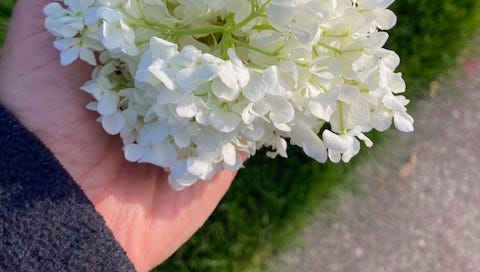





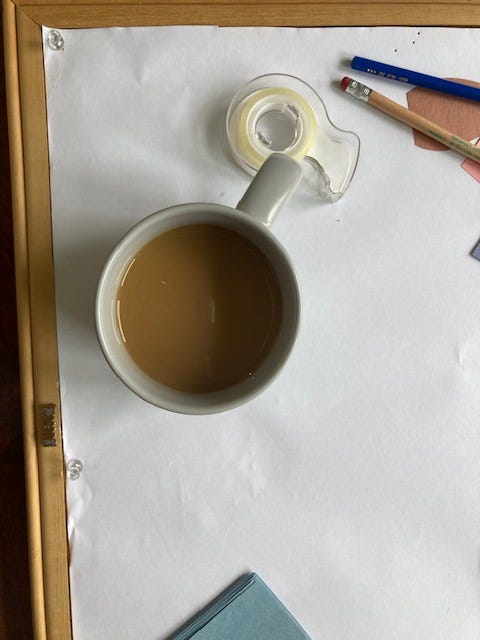
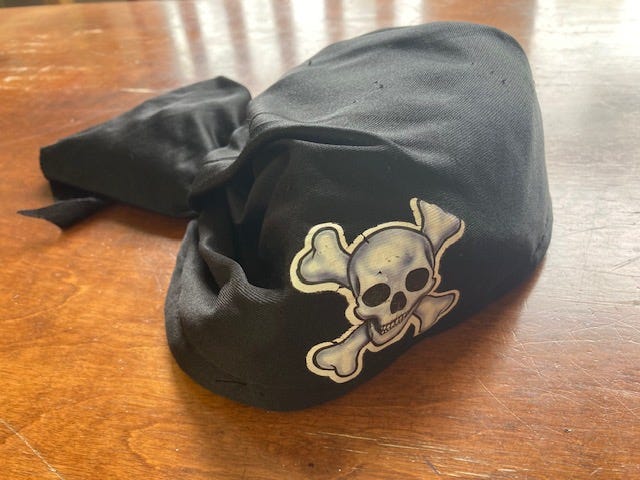
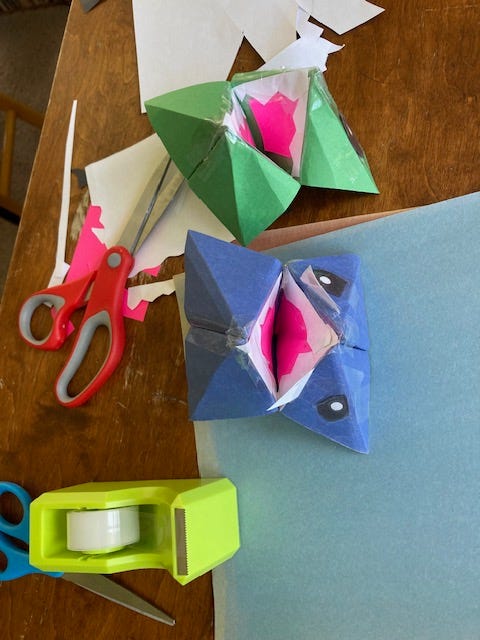


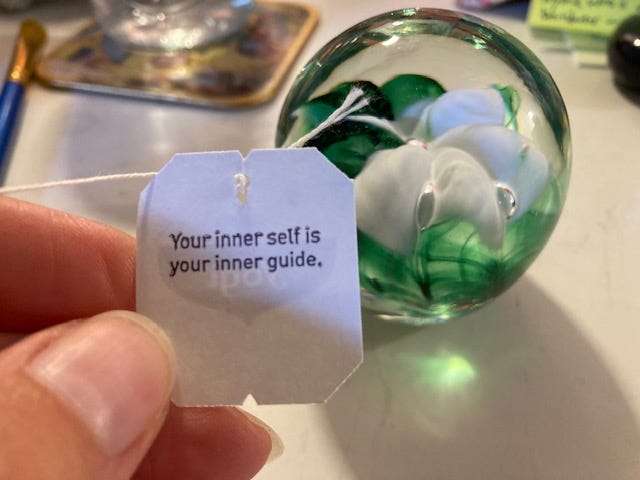
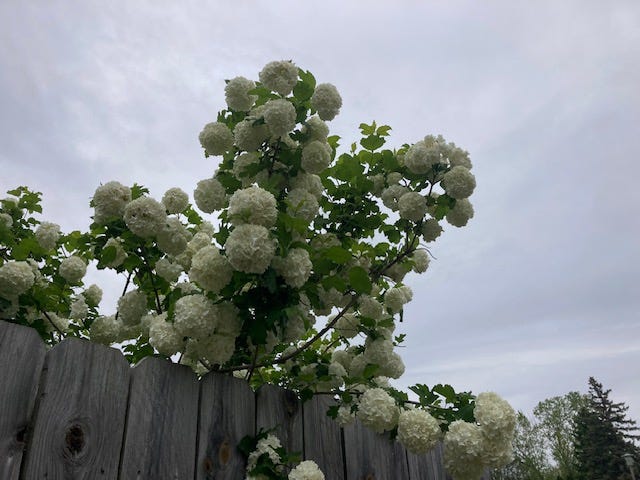
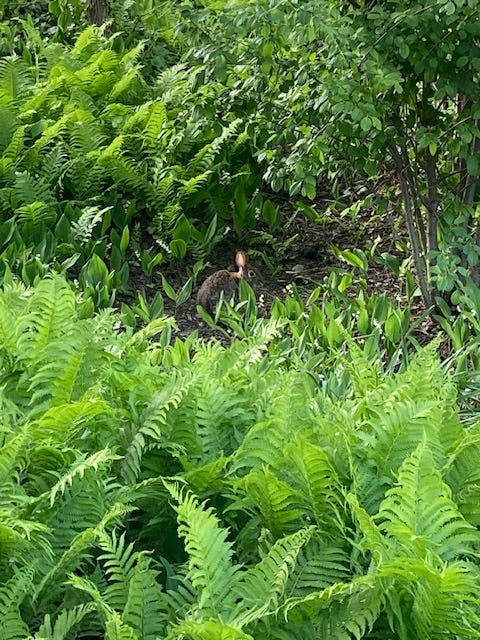
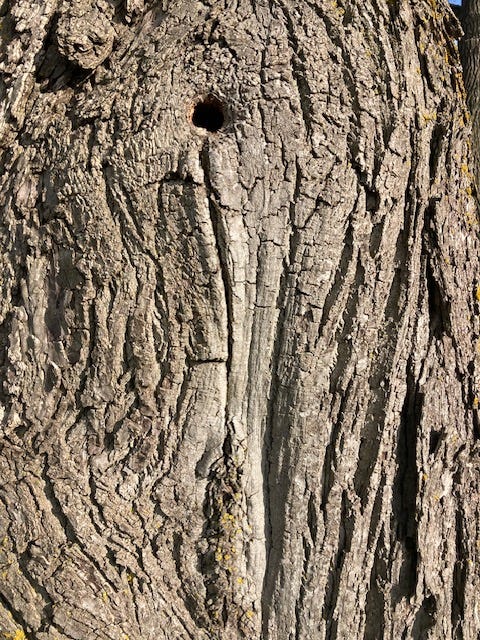
This is really beautiful, friend! So glad you wrote it all down.
Thank you for sharing these tender reflections on grief, Kara. I should imagine it feels like hurricane season everyday in the US under the current administration alone. Here’s to some humility and ability to take persoective spreading like a balm over such troubled waters.